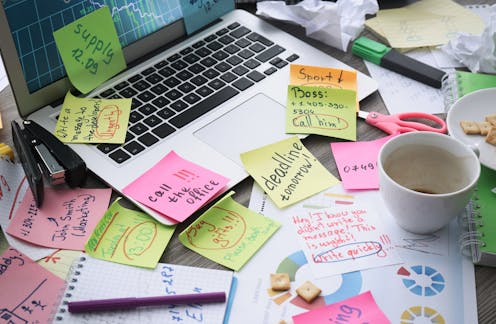It feels like we are living in busy times. According to the OECD Better Life Index , 12.5% of Australians report working at least 50 hours a week, higher than the OECD average.
Many Australians are also working more than one job to buffer against cost-of-living pressures . Psychology has long been interested in our goals – our mental representations of desirable outcomes. Much of this research is on how we form, pursue and attain goals, plus how goals make us feel.

Across studies, we see a consistent pattern of successful goal pursuit and wellbeing . So, having time to work toward our goals is important. With this in mind, what is the best way to get things done – and how can we get better at achieving our goals, especially when we feel time poor? Most of us approach multiple goals with the age-old “to-do” list.
First, you write down everything you need to do. Then you “check” or tick things off as you do them. One reason to-do lists are useful is because we are more likely to remember things we haven’t completed, rather than things we have.
This is known as the Zeigarnik effect . While to-do lists are easy to write, they don’t always work. There are however various approaches for to-do lists that may improve their effectiveness.
Another thing to consider is the wide range of apps, tools and platforms that can make tasks more fun and outsource mental load. Adding elements of game play like point scoring or competition – called “ gamification ” – can he.























